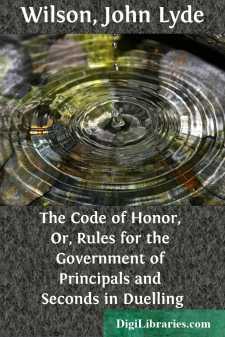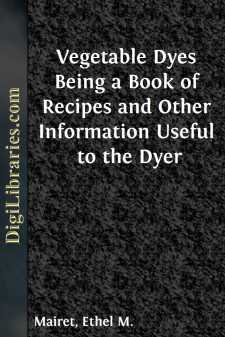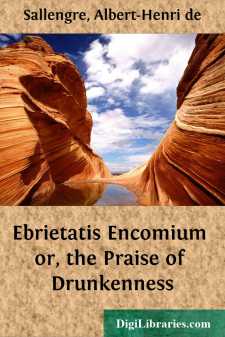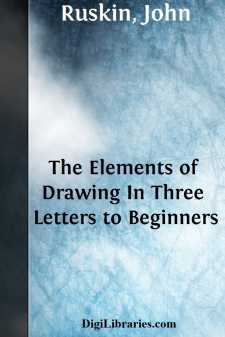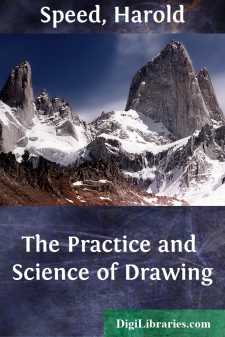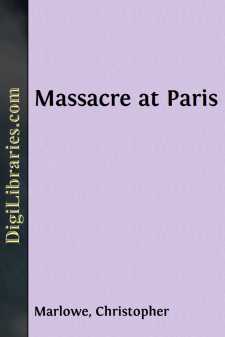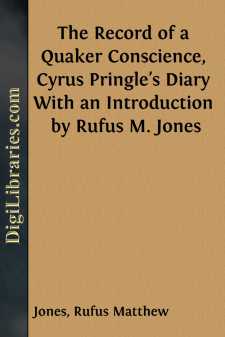Non-Classifiable
- Non-Classifiable 1768
Non-Classifiable Books
Sort by:
by:
John Lyde Wilson
CHAPTER I. The Person Insulted, Before Challenge Sent 1. Whenever you believe that you are insulted, if the insult be in public and by words or behavior, never resent it there, if you have self-command enough to avoid noticing it. If resented there, you offer an indignity to the company, which you should not. 2. If the insult be by blows or any personal indignity, it may be resented at the moment, for...
more...
by:
Thomas Sherlock
The Relation I stand in to you, is a daily Call upon me to consider the spiritual State of these great Cities; and tho' I doubt not but God has many faithful and chosen Servants among you, yet the general View of the Wickedness and Corruption that abound, and are spreading far and wide, gives me, and must give to every serious Christian very painful Reflexions: It is hardly possible to think of...
more...
by:
Charles Davison
CHAPTER I. INTRODUCTION. I propose in this book to describe a few of the more important earthquakes that have occurred during the last half century. In judging of importance, the standard which I have adopted is not that of intensity only, but rather of the scientific value of the results that have been achieved by the study of the shocks. Even with this reservation, the number of earthquakes that...
more...
by:
Ethel M. Mairet
WOOL SILK COTTON AND LINEN WOOLS are of various kinds:— Highland, Welsh and Irish wools are from small sheep, not far removed from the wild state, with irregular short stapled fleeces. Forest or Mountain sheep (Herdwick, Exmoor, Cheviot, Blackfaced, Limestone) have better wool, especially the Cheviot, which is very thick and good for milling. Ancient Upland, such as South Down, are smaller sheep than...
more...
by:
Samuel Fallows
IN PRESENTING this history of the San Francisco Earthquake Horror and Conflagration to the public, the publishers can assure the reader that it is the most complete and authentic history of the great disaster published. The publishers set out with the determination to produce a work that would leave no room for any other history on this subject, a task for which they had the best facilities and the...
more...
CHAP. I.THAT ONE MUST BE MERRY. If on one hand I have reason to fear that the title of this book will offend the delicate ears of a great many, and make them say, that no vice ever wanted its advocate, Nullo vitio unquam defuit advocatus; I am not, perhaps, less exposed on the other to the criticisms of as many folks, who will probably apply to me that which was said heretofore to one in Lacedemonia,...
more...
by:
John Ruskin
i. It may perhaps be thought, that in prefacing a manual of drawing, I ought to expatiate on the reasons why drawing should be learned; but those reasons appear to me so many and so weighty, that I cannot quickly state or enforce them. With the reader's permission, as this volume is too large already, I will waive all discussion respecting the importance of the subject, and touch only on those...
more...
by:
Harold Speed
IINTRODUCTION The best things in an artist's work are so much a matter of intuition, that there is much to be said for the point of view that would altogether discourage intellectual inquiry into artistic phenomena on the part of the artist. Intuitions are shy things and apt to disappear if looked into too closely. And there is undoubtedly a danger that too much knowledge and training may supplant...
more...
[Scene i] Enter Charles the French King, [Catherine] the Queene Mother,the King of Navarre, the Prince of Condye, the Lord highAdmirall, and [Margaret] the Queene of Navarre, with others. CHARLES. Prince of Navarre my honourable brother,Prince Condy, and my good Lord Admirall,wishe this union and religious league,Knit in these hands, thus joyn'd in nuptiall rites,May not desolve, till death...
more...
INTRODUCTION The body of this little book consists of the personal diary of a young Quaker named Cyrus Guernsey Pringle of Charlotte, Vermont. He was drafted for service in the Union Army, July 13th, 1863. Under the existing draft law a person who had religious scruples against engaging in war was given the privilege of paying a commutation fine of three hundred dollars. This commutation money...
more...


